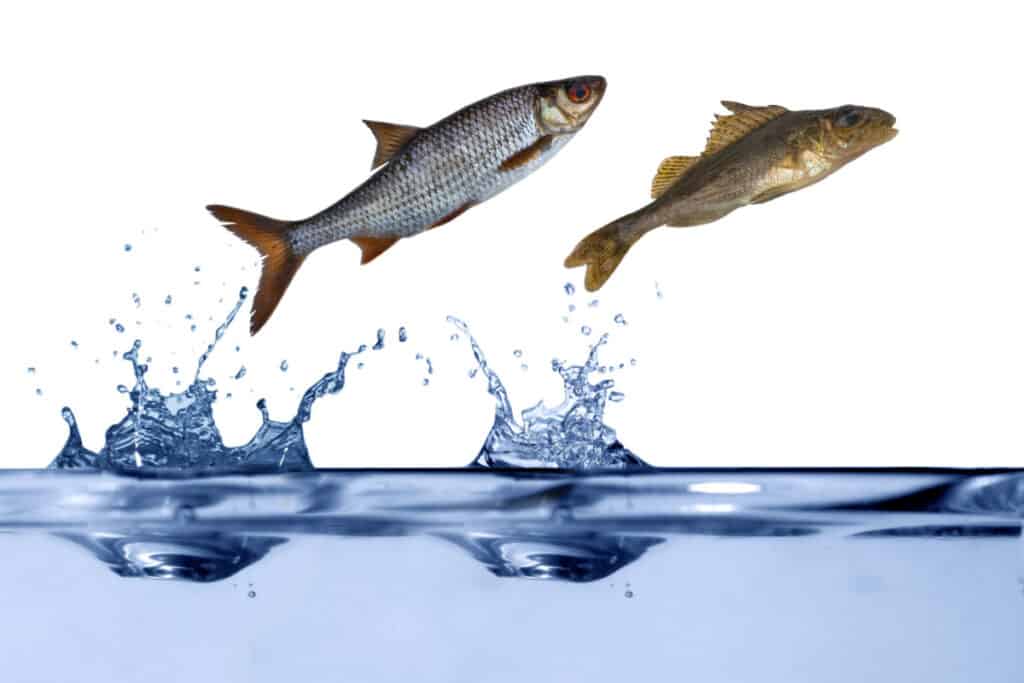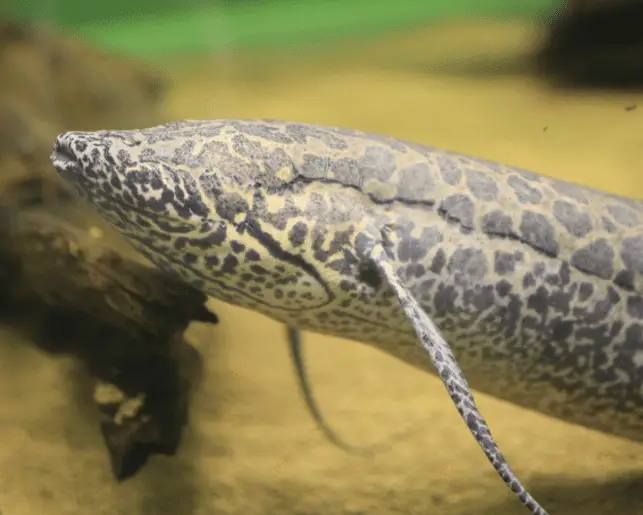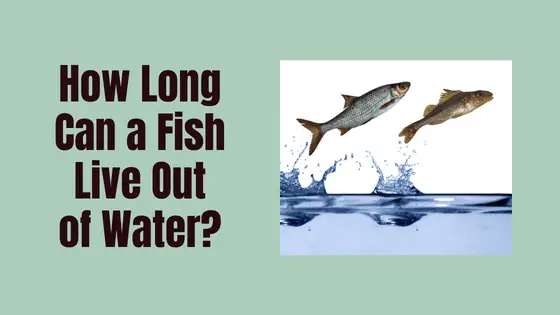This is a question that many people have asked, at one time or another, as they are curious about the survival rates of these creatures. The answer to this question is not as simple as one might think, as several factors can affect how long a fish can survive out of water. The question we want to know though, is how long can a freshwater fish live out of water?
Most tropical freshwater fish can only live for a few minutes out of water. Some fish species can stay out of water for longer due to evolved adaptations and specialized organs. The length of time a particular fish can live out of water is determined by several factors.
While it’s true that freshwater fish need to be in the water to survive, certain species can live for quite some time out of water – sometimes even weeks! – as long as they have access to moisture. Let’s explore the factors that influence the length of time a fish can survive out of the water and what happens when they are water deprived.

How Long Can A Fish Survive Out Of Water?
Freshwater fish can survive out of water for varying periods, depending on several factors. The type of fish, its metabolic rate, and the oxygen demands of its body are all critical factors in determining how long a fish can live out of water.
However, some species of fish, such as the lungfish, have evolved adaptations allowing them to survive for extended periods out of water. These adaptations enable these species to survive in habitats where dissolved oxygen levels are chronically low, such as stagnant ponds or marshes.
The lungfish can absorb oxygen through its skin and breathe air directly into its lungs. Other species of fish, such as the eelpout and the killifish, can withstand being out of water for much longer periods than most other fish due to their low metabolic rates.
Catfish and eels have a unique ability to absorb oxygen through their skin. This allows them to survive for some time out of water. However, they must return to the water periodically to wet their skin and prevent it from drying out.
In general, however, most freshwater fish experience stress within minutes of being removed from their aquatic environment. This stress is caused by several factors, including dehydration, changes in temperature and pressure, and a lack of oxygen. If a fish is not returned to its natural habitat promptly, it will likely die from these stresses.

Why Do Survival Rates Vary For Fish Out Of Water?
A goldfish can survive out of water for a much more extended time than a guppy. This is because goldfish have a higher oxygen deprivation tolerance and can withstand environmental changes better.
Fish with a high metabolic rate require more oxygen to survive and will therefore not be able to last as long without access to oxygen-rich water. Fish that are highly active or have large body sizes will have higher oxygen demands and will not be able to survive as long without access to fresh water.
What Happens To Fish When They Are Out Of Water?
When most freshwater fish are taken out of the water, they will experience the effects of dehydration almost immediately. The fish’s body will start to dry out, and its cells will shrink. This process can be very damaging to the fish, and if it is not returned to water soon, it will die.
If the air is cold, the fish will dehydrate more slowly and have a better chance of surviving. If the air is warm, the fish will dehydrate more quickly and have a lower chance of surviving.
A fish can “drown” if it cannot get enough oxygen. When a fish is out of the water, it cannot breathe and will eventually suffocate.
Can Fish Resurrect After Being Removed From Water?
Many believe that fish can come back to life after being out of water for some time. However, this is not the case. Most fish cannot live lengthy periods out of the water and will die if not returned to the water.
Fish need water to maintain their body temperature. When fish are out of the water, their gills dry out, and they cannot breathe. Without water, fish will quickly become too cold or too hot and die.
Aestivation is a state of dormancy that allows animals to conserve energy and survive in harsh conditions. In some cases, fish have survived out of water for short periods using aestivation. However, this is not the same as coming back to life after death, as the fish is still alive during aestivation.
How Do Different Fish Species Breathe In Different Water?
Different fish species have different respiratory systems that allow them to breathe in different water conditions. For example, some fish can breathe in fresh and salt water, while others can only breathe in fresh water. Additionally, some fish can live in water with deficient oxygen levels, while others require higher oxygen levels.
Numerous factors affect a fish’s ability to breathe in different water conditions. The type of gills the fish has, the size and shape of the fish’s body, and the fish’s activity level also affect its respiratory needs.
Some common freshwater fish in fresh and saltwater include eels, catfish, and certain types of carp. These fish have particular adaptations that allow them to osmoregulate or regulate their body’s salt content. This enables them to live in both fresh and saltwater environments.
Other freshwater fish, such as trout and salmon, can only live in freshwater. These fish cannot osmoregulate and would therefore not be able to survive in a saltwater environment.
There are also some freshwater fish that can live in water with deficient oxygen levels. These include particular carp and catfish adapted to living in stagnant or slow-moving waters. These fish typically have smaller bodies and lower metabolic rates than other fish, which helps them to conserve oxygen.
Can Fish Live In Water Without Oxygen?
Freshwater fish can live in water with deficient levels of dissolved oxygen, but they cannot survive in water that is entirely devoid of oxygen.
Fish use a variety of strategies to cope with low oxygen levels. Some fish can extract more oxygen from each breath, while others have specialized organs that allow them to breathe air directly. Some fish can even tolerate short periods out of the water, provided they can access moist air.
While most fish can technically survive in water without oxygen, they will not thrive and eventually die if conditions do not improve. Oxygen is essential for all cellular functions, and without it, cells quickly begin to die. In addition to the direct effects of hypoxia, fish also suffer from the indirect effects of anaerobic metabolism, which can lead to the build-up of toxic by-products in the body.
Conclusion
Some fish can live out of water for some time, but the length of time varies depending on several factors. The type of fish, the metabolic rate, and the oxygen demands all play a role in how long a fish can survive out of water.

